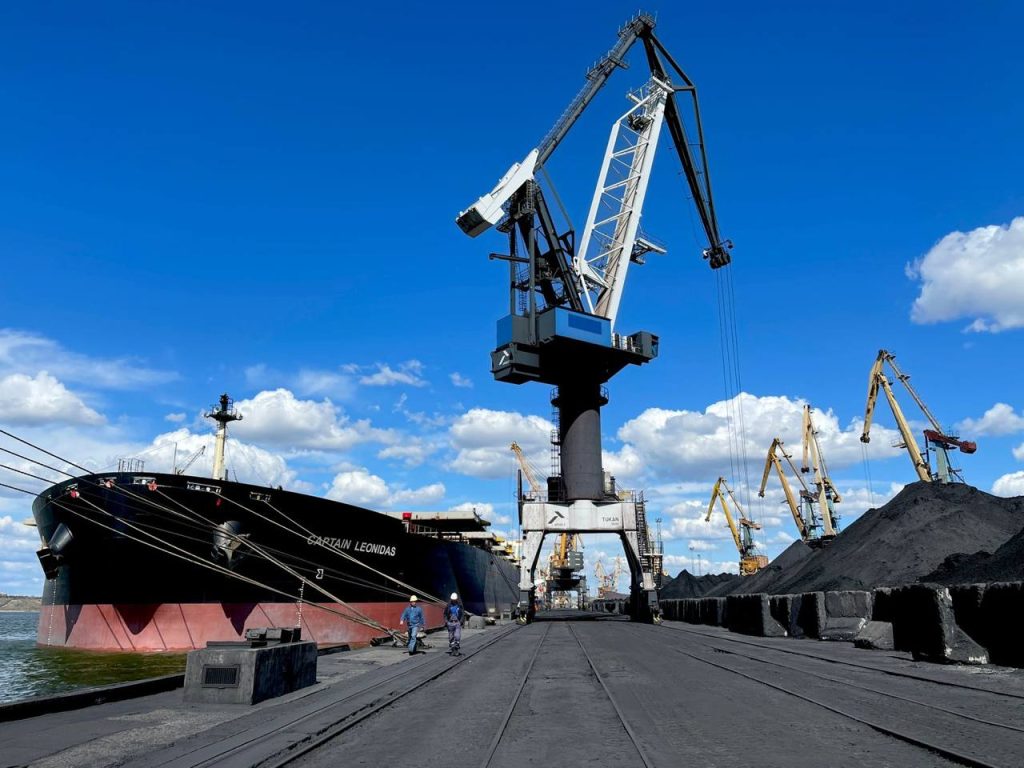Ukraine’s Black Sea corridor, opened in August 2023, has facilitated the shipment of over 36 million metric tons of goods, surpassing the Black Sea Grain Initiative established by Turkey and the U.N. in July 2022. Originally intended as a humanitarian corridor, it has now become a major trade route, with 1,286 vessels exporting 25 million metric tons of agricultural products to various regions. Currently, there are 135 cargo vessels waiting to enter ports in and around Odesa, expected to export 4 million metric tons of cargo. The Ukrainian Ministry of Infrastructure is working diligently to ensure stable exports and reach pre-war levels of trade.
Recent reports indicating the suspension of Ukraine’s temporary grain corridor in the Black Sea caused confusion and concern. However, experts believe that Ukraine’s new Black Sea corridor has significant potential. While there have been challenges and disruptions, the corridor’s success in facilitating the export of goods and serving as a vital trade route cannot be overlooked. With continuous efforts from the Ministry of Infrastructure and other stakeholders, it is expected that the corridor will be able to overcome any obstacles and continue to support Ukraine’s trade activities effectively.
The Black Sea corridor has played a crucial role in Ukraine’s trade operations, especially following the cancellation of the Black Sea Grain Initiative by Russia in July 2023. This move prompted Ukraine to open its new corridor the following month, allowing for the uninterrupted export of agricultural products to various destinations. The corridor has not only enabled the passage of goods but has also helped in the recovery of Ukraine’s economy by ensuring stable exports and maintaining trade relationships with international partners. It has also positioned Ukraine as a key player in the global trade market, showcasing the country’s resilience and determination to overcome challenges.
The success of Ukraine’s Black Sea corridor highlights the importance of investing in infrastructure and trade routes to support economic growth and resilience. By creating new trade opportunities and facilitating the seamless transport of goods, Ukraine has been able to expand its trade network and increase its presence on the global stage. The corridor’s ability to overcome challenges and adapt to changing circumstances demonstrates the importance of innovation and strategic planning in sustaining trade activities during times of crisis. It also emphasizes the significance of independent journalism in reporting on such developments and raising awareness about the impact of trade routes on economic stability.
Supporting independent journalism in Ukraine is crucial in providing accurate and timely information about the country’s trade activities, including the success of initiatives like the Black Sea corridor. By joining the fight to support independent journalism, individuals can contribute to the dissemination of reliable news and analysis on Ukraine’s trade operations and the impact of infrastructure projects like the Black Sea corridor. This support is essential in ensuring transparency and accountability in the reporting of trade-related developments, which play a significant role in shaping public opinion and influencing policy decisions. As Ukraine continues to navigate its trade challenges, the role of independent journalism becomes increasingly important in providing a platform for informed discussions and critical analysis.


